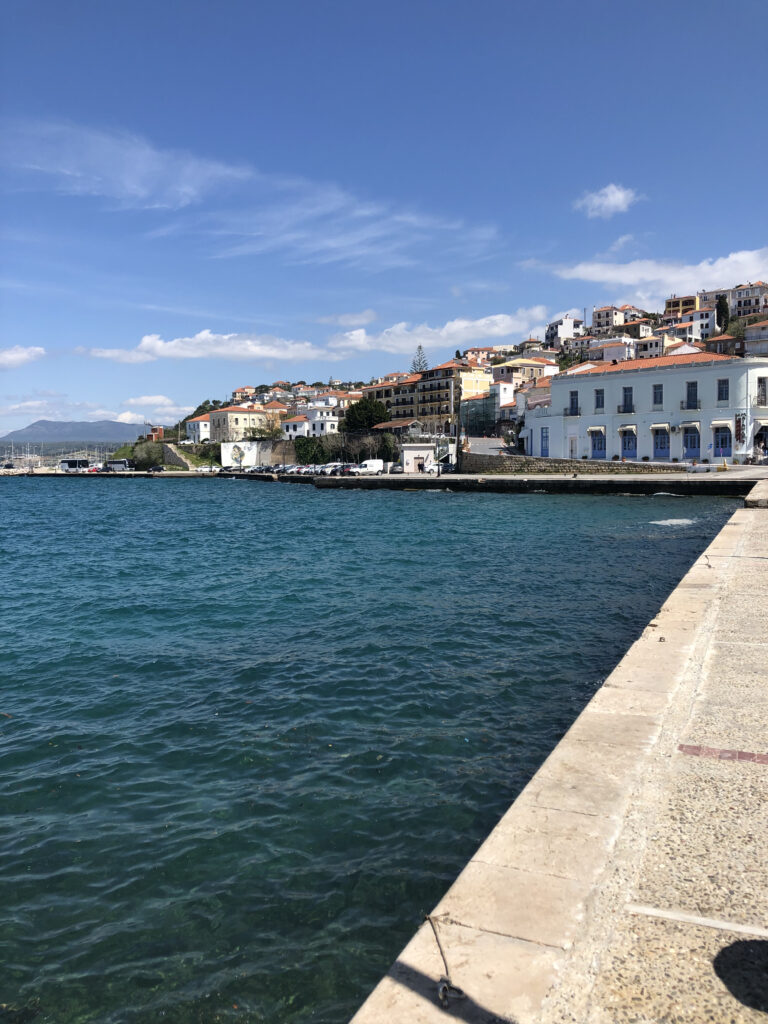I recently enjoyed a four-day break in southern mainland Greece, in the Peloponnese, with one of my sons and his girlfriend. We played some golf, drank some ouzo and generally looked around. One of our looking-arounds took in the town of Pylos, close to the spectacular hotel at Costa Navarino that we were staying in.
This being Greece, you will not be shocked to learn there are some ancient remains around the place. Notably, perhaps, a large Mycenaean-era building, which is locally called the ‘Palace of Nestor’ after the name of the king in Homer’s Iliad. Historically, Pylos is rather famous for fighting. In 425 BC, it was the site of the Battle of Pylos during the Peloponnesian War. Fast forward more than 20 centuries and in 1827 it was the setting for the Battle of Navarino (the Italian name for the the town, which for a few decades was under Venetian rule), which was the last naval battle in Europe. This saw the defeat of the Turkish/Egyptian fleet of the Ottoman Empire and led to the securing of Greek independence. Big-deal warfare, in other words. By way of modern acknowledgement, the main bar at Costa Navarino is called 1827, as is the house wine (of whichever colour).

About 10 kilometres from Pylos is the smaller town of Gialova, which has a jetty running from the sea into the village which my son felt certain had been used as a location in last year’s film, Glass Onion. (He was wrong; that was elsewhere in Greece.) There is a nature reserve and bird sanctuary nearby, and on the far side of the reserve is the exquisite beach you can see on the home page – Voidokoilia. It forms an almost perfect omega (the last letter of the Greek alphabet). The best view of it, fairly obviously, would be an aerial one. Given that you don’t have wings (enormous consumption of Red Bull notwithstanding), that essentially entails a climb to the top of a nearby outcrop where stand the ruins of the old castle, Paleokastro. I have to confess I didn’t.
Back to the Ottomans. There is a newish Greek restaurant and delicatessen on Mortimer Street in London’s West End. It’s called 1905 London. Why 1905? Because that was the year of a famous revolt, another case of the Greeks sticking it to their Ottoman rulers, this being the beginnings of the process which would see Crete become part of Greece. It’s all quite a lot to take in while you’re enjoying a glass of retsina and a bowl of taramasalata with some pitta bread and olives. But worth the eating.
